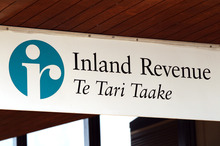Wednesday Apr 13, 2016
The tax changes unveiled by John Key today include plans to provide Inland Revenue with new powers to share information about tax debts with credit rating agencies.

Changes to tax payment rules should make things easier for small business, but IRD will get new information sharing powers. Photo / Janna Dixon
David Snell, EY executive director tax, said the changes provided further illustration that the “the tide is going out for tax secrecy, with the government seeing Inland Revenue information as a significant asset to be exploited.”
The provisions will be used for just “the most serious cases of non-compliance” according to the Government issues paper released today.
But the information will include child support, student loans and employer KiwiSaver payments as well as income tax, GST and PAYE debts.
“The lack of visibility of tax debt can have significant impact on other businesses,” the issues paper says.
Improved disclosure of debts would allow companies to make more informed decision about their dealings with other businesses.
“In addition, the non-payment of tax debt can allow non-compliant businesses to unfairly compete against those who are compliant.”
“In this case, tax debt will be more transparent and creditors able to make better decision about trading with tax-indebted business,” Snell said.
However he highlighted the privacy risks involved with strengthened powers of disclosure.
There must, however, be a risk that Inland Revenue will get something wrong, potentially harming the affected business: its systems are not perfect and the threat to contact credit agencies must not be used in the event of a tax dispute or audit.
“There must, however, be a risk that Inland Revenue will get something wrong, potentially harming the affected business: its systems are not perfect and the threat to contact credit agencies must not be used in the event of a tax dispute or audit.”
A second disclosure provision would enable IRD to share information with the Companies Office to assist it in tracking companies that are suspected of committing serious criminal offences.
This measure would have similar objectives to the IRD’s current information sharing regime with eh New Zealand police.
This proposal did face more challenges as Inland Revenue was not an expert in company law, Snell said.
While he accepted Inland Revenue’s argument that “habitual non-compliance with other government obligations was a predictor of tax non-compliance” he argued that it might not always be clear that the “reasonable suspicion” of an Inland Revenue officer would be the right standard for assessing whether tax information related to prosecutable offences under the Companies Act.
“If the taxpayer is unaware of disclosure until the Registrar of Companies proposes prosecution and criminal disclosure obligations, it may be difficult too for the taxpayer to challenge that release and/or successfully use Inland Revenue and Companies Office complaints processes.”
